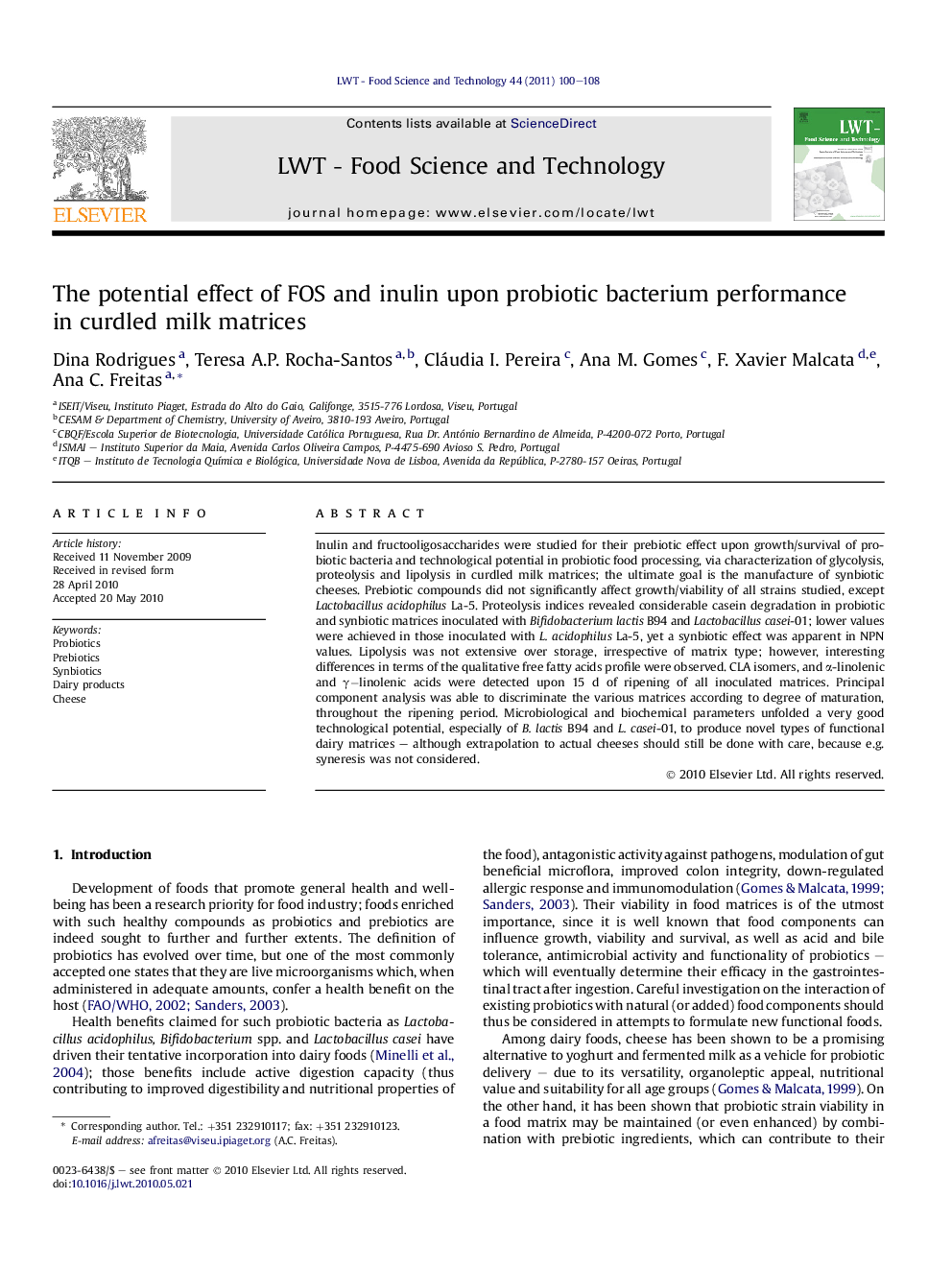| Article ID | Journal | Published Year | Pages | File Type |
|---|---|---|---|---|
| 4564219 | LWT - Food Science and Technology | 2011 | 9 Pages |
Inulin and fructooligosaccharides were studied for their prebiotic effect upon growth/survival of probiotic bacteria and technological potential in probiotic food processing, via characterization of glycolysis, proteolysis and lipolysis in curdled milk matrices; the ultimate goal is the manufacture of synbiotic cheeses. Prebiotic compounds did not significantly affect growth/viability of all strains studied, except Lactobacillus acidophilus La-5. Proteolysis indices revealed considerable casein degradation in probiotic and synbiotic matrices inoculated with Bifidobacterium lactis B94 and Lactobacillus casei-01; lower values were achieved in those inoculated with L. acidophilus La-5, yet a synbiotic effect was apparent in NPN values. Lipolysis was not extensive over storage, irrespective of matrix type; however, interesting differences in terms of the qualitative free fatty acids profile were observed. CLA isomers, and α-linolenic and γ−linolenic acids were detected upon 15 d of ripening of all inoculated matrices. Principal component analysis was able to discriminate the various matrices according to degree of maturation, throughout the ripening period. Microbiological and biochemical parameters unfolded a very good technological potential, especially of B. lactis B94 and L. casei-01, to produce novel types of functional dairy matrices – although extrapolation to actual cheeses should still be done with care, because e.g. syneresis was not considered.
